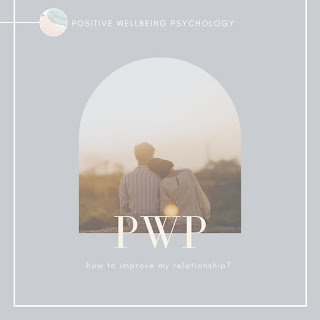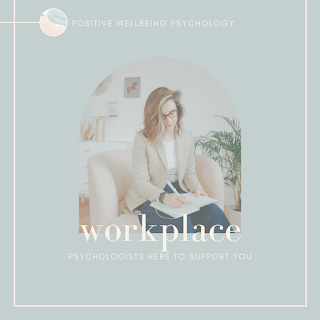How to identify destructive behaviours that will be causing relationship or marriage problems?
At Positive Wellbeing Psychology, our psychologists have a special interest in supporting individuals to improve interpersonal relationships and interpersonal functioning. In this article we explore common behaviours that exist in relationships, found in John and Julie Gottman’s research to predict divorce in married couples.
One behaviour found to be extremely damaging overtime includes - harsh “startup” in the discussion with your loved one, this includes:
The research by John and Julie Gottman has found that a conversation startup has a significant impact on the outcome of the conversation and overtime the relationship. The statistics found that 96% of the time, you can predict the outcome of a conversation based on the first three minutes of the interaction. When the discussion leads with a criticism and/or sarcasm (a form of contempt), it reflects the “harsh startup”. A harsh startup will inevitably end on a negative note. In time, this will push the individuals further apart and result in a level of disconnect of trust and intimacy.
John and Julie Gottman created the term commonly known in relationship therapy as The Four Housemen. Difficulties in relationships includes these four behaviours known as criticism, contempt, defensiveness, and stonewalling. Below we define these behaviours to ensure that you are able to recognize certain behaviours that may exist in your relationship or marriage that will inevitably lead to a negative outcome. Certain kinds of negativity, as discussed by defining the four horsemen, if allowed to run rampant in the relationship, are extremely damaging and have been found to predict divorce.
Criticism: Criticizing your partner is different than offering a critique or voicing a complaint. The latter two are about specific issues, whereas the former is directed at a person rather than the position they are maintaining. In short it is a personal attack. It is an attack on your partner at the core of their character. In effect, you are dismantling their whole being when you criticize.
Contempt: This is a form of communication whereby we treat our partner with disrespect, mock them with sarcasm, ridicule, call them names, and mimic or use body language such as eye-rolling or scoffing. The result of using this negative form of communication is making the other person feel worthless. John Gottman notes that contempt goes far beyond criticism. While criticism attacks your partner’s character, contempt assumes a position of moral superiority over them.
Defensiveness: Defensiveness is typically a response to criticism. We have all been defensive at some stage in our relationship, and this horseman is common when relationships are going through a challenging time. When we feel unjustly accused, we fish for excuses and play the innocent victim so that our partner will back off. Defensiveness has been found in a range of research to shut down relationships, rather than successfully bring individuals closer together. Our justification or excuses simply indicate to the other person that we do not take their concerns seriously and that we will not take responsibility for our mistakes. Taking accountability and listening to the other person about why they feel this way, will increase a sense of trust and welcome the individual to feel vulnerable around you more often; thereby increasing level of intimacy in relationships.
Stonewalling: Stonewalling is usually a response to behaviours that reflect contempt such as sarcasm, ridicule, and name calling. Stonewalling occurs when the listener withdraws from the interaction, shuts down, and simply stops responding to their partner. The individual does not confront the issues with their partner, rather they tune out, turn away, act busy, or engage in obsessive or distracting behaviors.
What if I can identify with some of these relationship difficulties?
It takes time for the negativity created by the first three horsemen to
become overwhelming enough that stonewalling becomes an understandable “out”.
When stonewalling does start to occur in the relationship, it increases in
frequently and becomes a bad habit. It is not an easy behaviour to stop.
Research has found that stonewalling results out of the individual feeling
physiologically flooded. The individual shuts down and when stonewalling, we
may not even be in a physiological state where we can discuss things
rationally. The best recommendation we can provide couples is when or if you
feel as though you or your partner is stonewalling during a conflict, try to
stop the discussion and ask your partner to take a break. The physical
sensations of feeling flooded make it virtually impossible to have a
productive, problem-solving discussion.
Where to start the journey of improving my relationship?
At Positive Wellbeing Psychology, we are here to listen and provide guidance using theories that have proven to be effective in disarming conflicting verbal communication, increase intimacy, respect and affection, remove barriers that create a feeling of stagnancy in conflicting situations and create a heightened sense of empathy and understanding within the context of the relationship. We are here to support you to improve relationship difficulties.
To enquire about an appointment with Positive Wellbeing Psychology, please complete our online contact form (click here). We’ll be in touch shortly to answer any of your questions.



Comments
Post a Comment